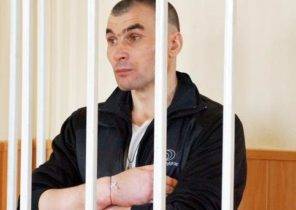
Recently in this blog, talking about questionable relations team trump with Russian officials, I described Russia as a “hostile foreign power”. Some of you began to argue, stating that Russia is quite friendly. This is completely untrue. I wish that relations of the USA and Russia were more friendly, but for each other we still remain hostile foreign powers. It is the United States after the cold war pushed NATO to the Russian border. Maybe we had good reasons for it (or not), but the Russians quite rationally consider it a hostile move.
Last week in the journal Atlantic Sigal Samuel wrote about the Russian (and Eastern European) concern about hostility of America on the front lines of a cultural war:
“In many countries of Central and Eastern European people are worried about the influence of America on Russia and their own country — and they want Russia rebuffed, according to a new survey by the Pew Research Center.
The results of the survey was published, by coincidence, just a few hours after the Minister of foreign Affairs of Russia Sergey Lavrov visited the White house and joked about the dismissal of Komi show that many countries where the majority are Orthodox Christians, believe that Russia is an important cushion against the influence of the West. Because the study was conducted in between June 2015 and July 2016, before the election trump, it does not reflect any shifts in public opinion that could provoke his administration. Still, the survey offers clear insights on how I perceive America, and how this perception is consistent with religious affiliation”.
There are a number of ambiguous reasons why Orthodox people regard the West as a threat, including economic. However:
“But the perception of a clash of values goes beyond the kinds of economic models. According to phifer noble, among Russians there is a perception that they preserve civilization, whether through conservative gender and sexual norms, in which they speak of literature, which is produced, or soldiers, of which each generation is sent to war. “Russian culture has their Canon, and it is impressive, she said. They have Tolstoy and Dostoevsky. They have iconography. The idea of suffering speaks of them as cultural values — and they feel that too in this win.”
Sergei Chapnin, former editor of the official publication of the Russian Orthodox Church, agreed that many Russians feel that their country is not only an integral part of European culture, but also surpasses it. (Indeed, according to the survey, 69 percent say that their “culture is superior to others”). “We have a desire to cooperate with Europe and call Europe an enemy, he said. — These two factors exist in the mass consciousness of Russians at the same time”. But he also warned that this psychological tension “manipulated by politicians”, referring sometimes to the Pro-Western feeling, and sometimes anti-Western, for their own purposes.”
Yes, of course. But this does not mean that the psychological and cultural tension there, and it is not important. The Americans is very difficult to think of themselves differently than those who brings light and goodness to other Nations. In the same spirit, many of us (especially secular liberals) perceive the resistance of American values — and, by extension, secular Western values — as an allusion to the senseless prejudices. The assumption that Western values are universal, extremely strong.
These values have global power not so much because they are true (although possible), but because it originated in the most economically and culturally powerful Nations of the world, especially in the United States. Ryszard Legutko, a Polish Catholic political philosopher, writes that Western liberalism appeared to simulate forced and unjust order supplanted them in Eastern Europe of communism. Cultural imperialism — the real thing, and less imperialist will not even hiding the aggression from the aggressors. As expressed Legutko, “the liberal democratic person, especially intellectual or artist, learn very reluctantly agrees, but is eager to teach others very zealously”.
When it comes to Orthodox Christianity and Orthodox Christians, many Westerners assume that the Orthodox are similar to our Christians, except that they use more incense and have a more pronounced ethnic feelings. I also used to be so, until, in 2006, did not accept Orthodoxy. Then one day a guy in my ward told me to be patient, as my brain will take at least 10 years to switch to an Orthodox way of thinking. I did not understand. I thought to get used to a few dogmatic changes and a new way of worship will be easy. Is not so. Orthodoxy is not just a set of theses, but a way of life — and it mostly does not reflect the experience of modernity, like Western Christianity.
I’m not here to argue whether it is good or bad, but as for me, it’s probably good. I want to say that the civilization of Orthodox Christians is much different from the West, which suggests that the correct social model is liberal individualism.
In the US, for example, the religious culture is very much influenced by Evangelical Protestantism, the Enlightenment and capitalism — all contemporary phenomena, understanding religion from the point of view of individualism and freedom of choice. Orthodox cultures have a much more traditional form of Christianity and morality, and religion is perceived in a much more General — what can be observed in the West until the reformation and Enlightenment. Patriarch Kirill, the head of the Russian Orthodox Church very correctly described the basic principle of modern Western cultural life as the assertion of the right to freedom of choice, which provides for the reduction of the role of religion in public life. Then Kirill said the following:
“We cannot say that we live in a completely peaceful environment. Today there is a battle that take place without the roar of cannon, and the enemy that threatens us, not crossing our borders clearly. But we are all involved in the fact that in the Orthodox tradition is called the “invisible language”. Everyone today is involved in this battle. We offer the chaos, but we must not buy into these recommendations and to participate in the creation of chaos… we offer sin, the destruction of moral foundations”.
Here he wrote law Professor mark Movsesian in the scientific article about the differences between the West and the Orthodox East, as well as the meaning of human rights:
“[The social doctrine of the Russian Orthodox Church] ambivalence about the rights of the individual and its emphasis on religious community reflect the Central themes of Orthodox thought, which does not recognize the individualism of the Western type. And it’s not just the failure of “extreme individualism” in relation to Western communitarists. Orthodoxy often disagreed with the very idea of an independent self as a subject of law. The Orthodox thought emphasizes the relative “I”: personality is determined by the relationship with other members of the Church. According to Daniel Payne, “the Orthodox tradition understands the human from the point of view of the Church, not personality.” As a result, the tradition does not agree with the accepted Western idea of individual rights. “If the Orthodox political culture is the notion of the law, says Paine, — we are not talking about individual rights and about “rights groups”.
Moreover, the Orthodox thought brings together religious and national identity is stronger than in the West. Needless to say, in the West, religion can serve as a marker of national and cultural identity; to take at least Italy and Poland. And in the Orthodox countries the citizenship has no direct connection with religion; technically, you can be a citizen of Russia not being an Orthodox Christian. But in the Orthodox world, religion and national identity are intertwined particularly powerful. In Russia, for example, there is a “common idea” — “which is shared by politicians, intellectuals and clergy”, that Orthodoxy is the most essential factor of national identity. Other historical and ethnic factors around him fade. The same can be said of the other Orthodox countries such as Greece”.
Westerners to understand it’s hard in the number of applicants, like me, to Orthodoxy. I, for example, dissatisfied with the limitation of religious freedom in Russia, especially in regard to the Christian minorities. But that’s because my understanding of the relationship of religion with society westernized. As it says in the same scientific article legal collection Movsesian, the current teaching of the Catholic Church on religious freedom is also filled with the individualism of modernity.
The essence of this entry for my blog is not to argue about the superiority of one model over another. Both have there strengths and weaknesses. I would like to emphasize, however, that the rejection of the Orthodox countries of the liberal ideas of the West (gay rights or freedom of religion) is not an expression of bigotry, but due to a fundamentally different Outlook on human nature, Church and society. They consider the war of the West with their traditions under the banner of secular liberalism, an act of aggression — and they are right. And many Westerners, in contrast, perceive their actions as advocacy, as a struggle for basic freedoms against bigotry. But it is necessary to recognize the modern Western way of seeing the world standard — and it is an act of cultural imperialism.
On the other hand, cultural imperialism is sometimes justified. The British colonialists, for example, did a good thing when in the 19th century put an end to the ancient Indian ritual of Sati (immolation of widows on the funeral pyre of their deceased husbands). And yet in the face of cultural imperialism, use introspection, and to understand how other civilizations react to our cultural hegemony.
Modern America operates mainly on the principle identified in 1992 by justice Anthony Kennedy in the “Organization “Planned motherhood” against Casey”:
“At the heart of liberty lies the right to determine its own concept of existence, of meaning, of the universe and mystery of human life.”
Ignoring the legal and philosophical incoherence of this statement, as well as hidden in this compulsion, it very accurately sums up the attitude of Americans toward the relationship of society and religion and all transcendent. Orthodox countries rightly reject it as alien to their traditions and way of life. In the Orthodox understanding of what Kennedy and not freedom at all, but a form of slavery. Again, I’m not trying to convince you that the Orthodox view is correct, but only emphasize that the opposition of the Orthodox countries of the Western activists of “human rights” is not only self protection, but protection from the lies that they sincerely believe can destroy the whole structure of society.
Rod Dreher, a senior editor at American Conservative. He has written and edited articles in the New York Post, Dallas Morning News, National Review, South Florida Sun-Sentinel, Washington Times and Baton Rouge Advocate. Comments kind of was, inter alia, published in the Wall Street Journal, Commentary, the Weekly Standard, Beliefnet and Real Simple. He has also appeared on NPR, ABC News, CNN, Fox News, MSNBC and BBC. Lives in Saint-Francisville, Louisiana, with his wife and three children. The author of two books, The Little Way of Ruthie Leming and Crunchy Cons.







